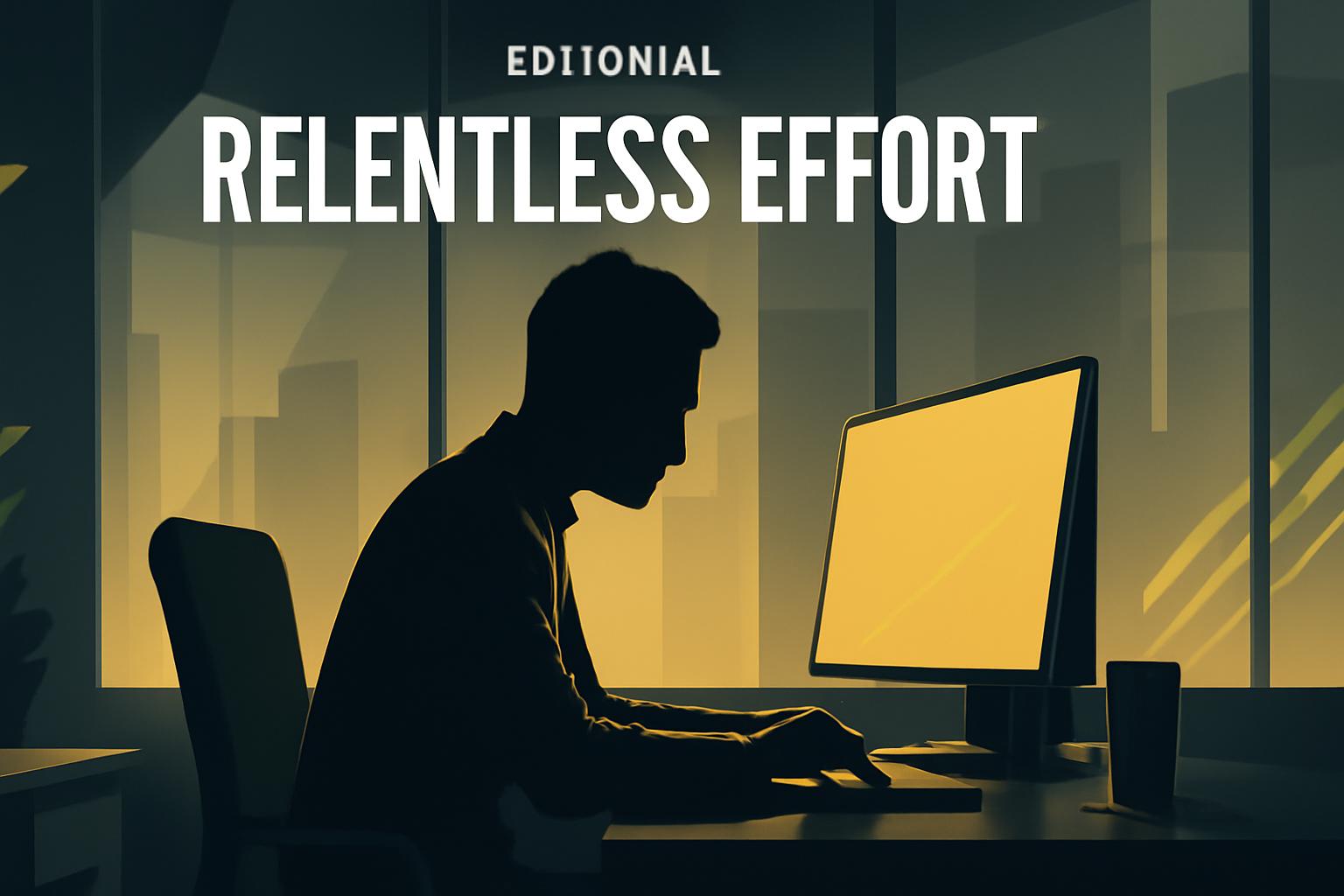Entrepreneurial Hard Work: The Core of Success
One defining trait sets the most successful business owners apart, according to Jimmy John Liautaud, billionaire founder of the Jimmy John’s sandwich chain: an uncompromising work ethic. In a recent TikTok video shared by The School of Hardknocks, Liautaud bluntly dismissed the concept of work-life balance for entrepreneurs as “the biggest line of bulls— that’s ever been created.” “There’s no such thing as work-life balance,” Liautaud asserted. “When you’re going to squeeze lemonade out of horses— you’ve got to squeeze really, really hard. To create something from nothing, there is no such thing.”
From Humble Beginnings to Billion-Dollar Brand
Liautaud’s perspective stems from decades of hands-on experience. Despite graduating near the bottom of his high school class, he launched his first sandwich shop in Charleston, Illinois, in 1983 at age 19 with a $25,000 loan from his father. Over 36 years, he methodically expanded the business, initially operating only stores he directly managed — opening ten locations exclusively in Illinois during the first decade. This foundation enabled him to franchise additional locations nationwide. Today, Jimmy John’s boasts over 2,600 stores across 45 states, a testament to Liautaud’s persistent strategy. In September 2016, Liautaud sold a 65% stake in the company to Roark Capital Group, a private equity firm based in Atlanta, valuing the business at approximately $3.5 billion. He stepped down as chairman in October 2019 following the acquisition of the remaining shares by Roark-owned Inspire Brands.
Overcoming Operational Challenges with Discipline
The company’s growth was far from linear. Liautaud revealed that in 2002, 70 out of 200 Jimmy John’s locations were struggling financially. His response was to instill a rigorous work ethic among franchise owners.
“If you’re going to go into the sandwich business, this is 24/7 365. If you’re in the cattle business, cattle need to get fed on Sunday. They need to get fed on Christmas day,” Liautaud explained. “If you’re going to do this, you better be ready to be a grinder.”
This unvarnished approach underscored his belief that entrepreneurship demands relentless dedication, often at the cost of personal downtime.
Comparisons with Other Notable Entrepreneurs
Liautaud’s work philosophy aligns with that of other high-profile entrepreneurs. Bill Gates reportedly eschewed vacations and weekends during Microsoft’s formative years. Elon Musk is known for intense work sessions, sometimes sleeping at the office. Nvidia CEO Jensen Huang described working from waking until bedtime in a May 2024 interview. Yet, some of these leaders have since embraced the importance of balance. Gates, for instance, expressed regret over his early workaholic habits during a 2023 commencement speech, urging younger generations to nurture relationships, celebrate achievements, and rest properly.
Conclusion
Jimmy John Liautaud’s journey exemplifies how dogged persistence and an uncompromising work ethic can build a lasting enterprise. His rejection of work-life balance as a myth for entrepreneurs challenges conventional advice and highlights the sacrifices inherent in creating and scaling a business from scratch.
FinOracleAI — Market View
Jimmy John Liautaud’s candid perspective on entrepreneurship underscores a persistent theme in startup culture: success often demands extraordinary personal sacrifice and continuous hustle. His experience growing a regional sandwich shop into a multibillion-dollar franchise offers insights into scaling challenges and leadership discipline.
- Opportunities: Strong founder-led commitment can drive brand consistency and operational excellence.
- Risks: Unsustainable work expectations may lead to burnout among entrepreneurs and franchisees.
- Private equity involvement can accelerate growth but may pressure operational metrics.
- Shifts in entrepreneur attitudes toward work-life balance could redefine future leadership models.
Impact: Liautaud’s stance reinforces the narrative that relentless effort remains a cornerstone of entrepreneurial success, influencing how startups and franchises approach growth and management strategies.













